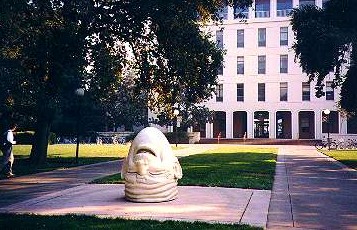
Community College vs. University
usinfo | 2013-07-18 16:05

Trying to decide whether to attend a community college or a university right out of high school is a question worthy of pondering. I’ve attended both (university, then CC, then university) and each has its pros and cons.
Class Size
Community Colleges tend toward fewer students per class, which means more student/teacher interaction. This is good for students who like access to their instructors so they can ask questions and avoid getting lost (in the course material or in the shuffle).
Universities usually have massive auditoriums full of a few hundred students, all of whom are trying to keep their heads above water and have hordes of fellow student to compete with for the prof’s office hours. Higher level courses have smaller class sizes (the riff-raff have been weeded out and those left have proven their mettle).
Campus Housing
Community Colleges rarely have on-campus housing to offer.
Universities generally have one or more version of campus housing in order to accommodate students, grad students, faculty, married students, etc.
Expense
Community College will put less of a dent in your college fund.
University tuition costs vary depending upon whether they are public or private, but are more expensive than community colleges.
Caliber of Instruction
At any school there are the amazing instructors and the dismal ones. It’s just the way it goes. I have experienced both kinds at two-year and at four-year schools.
A lot of great instructors teach at community colleges because they actually want to teach and not do the whole publish-or-perish game. I’ve had community college instructors who were there because they wanted to teach at a college-level and they were effing good at it. They could break down some utterly confusing and complicated calculus or chemistry or physics moment into its most simplified, basic form and with one eloquent statement sweep it up, explain it, and have it all fall into place, fully comprehended, in my head.
I’ve had university profs who were so busy with their research (which is, unfortunately, the only way to achieve and maintain professor status) that they were more like silent partners in the course and their TA’s did the actual teaching and question-fielding. But I’ve also had ass-kicking professors who clearly went into their chosen field because it is the thing that makes their world complete and they are happiest standing in classroom explaining their idea of perfection to college students.
Architecture
Community Colleges are rarely architecturally stunning as they tend to lack both real estate and funding.
University architecture is what we all think of when we picture a college campus: the buildings vary depending upon the decade in which they were built, but overall a university campus is usually far superior to its community college counterpart.
Transition Issues
The transition from high school to a community college is easier, but you miss out on all the dorm parts.
Jumping from high school to college isn’t as smooth as it could be, but moving away from home when you’re a barely legal adult and living sans parental supervision in a puke-infested dorm is the American version of painfully unmentionable tribal rites of passage. It’s a grow-up-quick, sink-or-swim, survival-of-the-fittest situation and it is what memories are made of.
Degrees Obtainable
Community colleges offer Associate of Arts degrees, nothing higher. However, they are extremely useful as a means to a transfer end: most general ed. coursework that a university requires of its freshmen and sophomores can be taken at a community college.
At a university you can be educated to within an inch of your life: they offer Bachelor’s degrees, Master’s degrees and Doctorates. Go crazy.
College Life
Little or none at a community college.
Lots at a university. Sports, clubs, bonding with fellow collegians, you name it.
Share this page



















